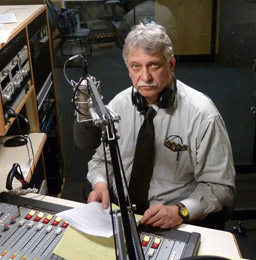Getting caught in the crossfire of a shooting incident, be it in Tucson or Islamabad, is frightening. You feel defenseless, helpless, perhaps frozen to the spot.
But you are not necessarily helpless, says former Secret Service agent Christopher Falkenberg — and he should know. The Secret Service’s primary task is to guard the president of the United States. There are ways, says Falkenberg, to improve what he calls “admittedly thin chances of survivability” when the bullets are flying.
Here are his tips:
If someone can’t see you, then generally they can’t shoot you. So take whatever cover you can, even if it’s cover that won’t stop a bullet.
If the attacker is going through a building looking for victims, turn lights off and stay quiet. (Some victims of shooting sprees have also survived by playing dead.)
“In many cases, people who commit these crimes have rehearsed these crimes, and they have not contemplated what would happen if there is any resistance” Falkenberg says. So if you’re faced with a shooter and there is nothing else to do but wait for the inevitable bullet, he counsels putting up active resistance: throw a stapler, telephones, whatever you can do. You might just disrupt his plans, or at least prevent others from being harmed.
In that I am reminded of United Airlines Flight 93 on Sep. 11, 2001, in which the passengers decided to fight the hijackers who were planning to crash the plane into a Washington target, perhaps the Capitol. Instead, the plane crashed into a Pennsylvania field.
I would add another tip of my own: learn some basic first aid, especially CPR (cardio-pulmonary resuscitation). Some advanced training is even better. I once took a week-long course designed for journalists traveling to danger zones. Part of the course was training in on-the-spot treatment of trauma, including gunshot and other wounds. It was pretty harrowing stuff, to tell you the truth. Do I remember everything that was taught? No. But I retained enough, I think, not to feel helpless in such a situation.
Certainly I would want to have the presence of mind that congressional intern Daniel Hernandez had when his boss was shot in Tucson. He rushed to her side and applied direct pressure to the gunshot wound in her head, and told a bystander how to apply pressure to another victim’s wound. Doctors say that probably saved the congresswoman’s life.

